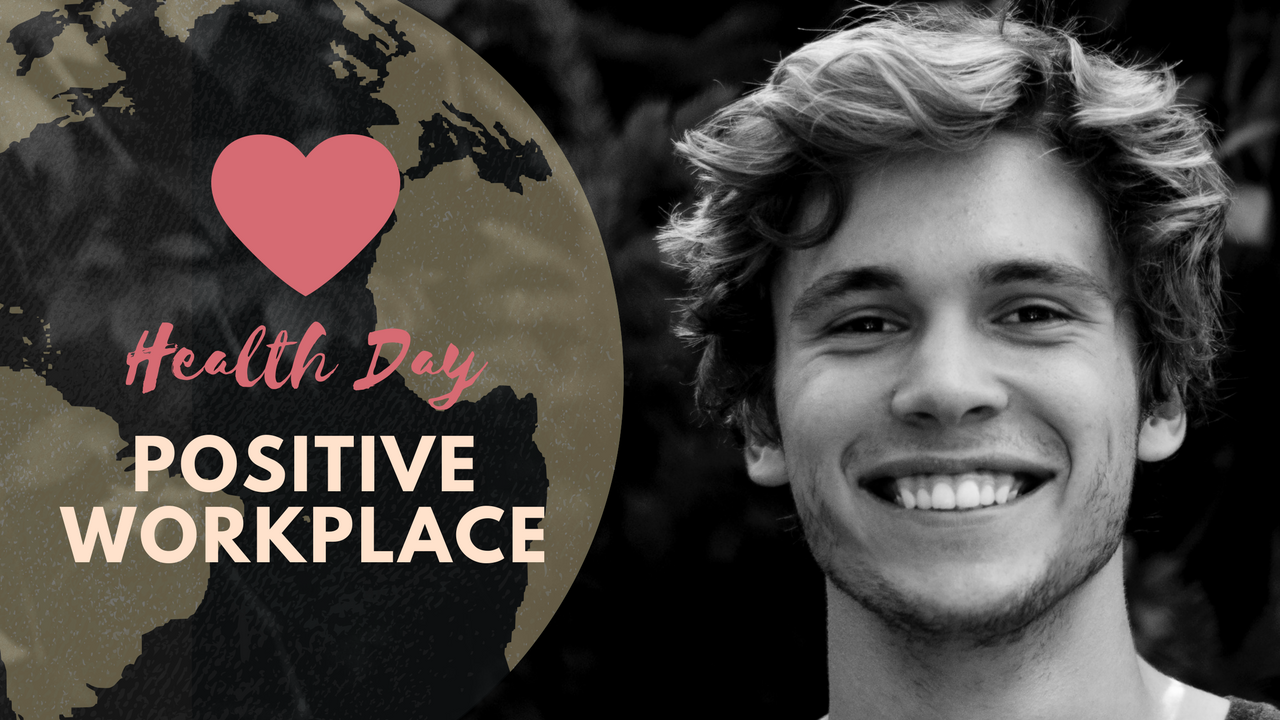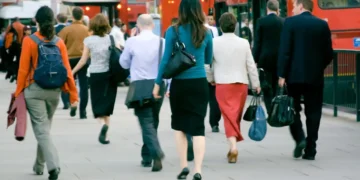- World Health Day is an initiative by the World Health Organization (WHO), which takes place on Saturday 7th April 2018
- Health is not just about physical wellbeing, it is also about mental health
- A positive workplace culture can encourage conversations around mental health and create a support network
Ahead of World Health Day on Saturday 7th April 2018, there are potentially hundreds of different ways we could discuss how the workplace impacts the individual health of its occupiers across the globe, from sedentary working habits and fitness programmes to active design and even healthy workplace snacks.
But, health is not just about physical wellbeing.
“When we think about our physical health, there’s a place for keeping ourselves fit, and a place for getting appropriate help as early as possible so we can get better. Mental health is just the same.” – Mental Health Foundation
With World Health Day approaching, let’s use this opportunity to shine a light into one of the areas of personal wellbeing that’s often the most challenging to talk about: mental health.
There are 7.6 billion people on our planet. Each one of us is unique, and every single person’s mental health mirrors an exclusive lifetime of experiences, memories, emotions, and current factors such as illness, money worries or discrimination; it all adds up and impacts our daily lives in different ways.
Fears or worries can escalate into mental health issues like anxiety or depression, which can happen to anybody at any time. A mental health problem doesn’t necessarily fit checkbox symptoms, and it isn’t always recognisable. Even family members or close friends can miss the signs.
This is where the workplace can help.
We spend a huge part of our lives at work, with colleagues and in teams, surrounded by other people. Workplaces, from corporate headquarters to business centres and coworking spaces, are increasingly shifting towards even greater collaboration; environments that facilitate teamwork and lead to more time together.
These environments are designed to be more supportive and to create opportunities to engage and share knowledge, which is positive for business, productivity, and for personal development. What if we could take it further? What if we could harness that global movement and collaborative mindset to look out for each other on a personal level, just a little more?
Positively, the wheels are already in motion.
One such movement is CheckYoMate, launched by Liz Elam of GCUC and Link Coworking alongside Iris Kavanagh and Cat Johnson, which aims to combat loneliness and raise awareness of mental health issues through coworking.
Blogging about CheckYoMate, Elam says: “We started Check Yo Mate, inspired by R U Okay in Australia, to combat the loneliness issue and help dismantle the stigma around mental health.
“Community is about people. Coworking is about building a better daily experience for humans. We all spend the majority of our day at ‘work’, so shouldn’t that space be amazing? Shouldn’t people know your name? Shouldn’t they care about you? Shouldn’t the space make your health better? Shouldn’t you feel inspired? (…) We think so too.”
CheckYoMate is inspired by R U Okay, a suicide prevention charity in Australia, which works to remind people that having meaningful conversations with friends and loved ones could save lives. According to WHO, close to 800,000 people worldwide die due to suicide every year, and it is the second leading cause of death among 15-29 year olds globally.
It doesn’t have to be this way.
You don’t need to be an expert to talk about mental health. Starting a conversation can be a powerful way to connect with people and to raise awareness of the need to challenge mental health stigma.
A positive, community-focused workplace can help. In its guideline for supporting mental health at work, The Mental Health Foundation notes:
“When we create workplace cultures where people can be themselves, it is easier for people to speak about mental health concerns without fear, and easier for them to reach out for help when they need it. Even so, the decision to disclose distress at work is not one people take lightly. It is vital that workplaces become environments where people feel safe to be themselves.”
Another resource from UCL School of Management offers guidance on how to tackle mental health issues, such as anxiety, in the workplace.
Movements like CheckYoMate and R U Okay, and charities like Mind, CALM, and the Samaritans, alongside many more, exist to support people who don’t know where to turn or where to find help.
If you’re worried about someone, if they seem a little out of sorts or if they’re acting differently, you can help by starting a conversation. Just letting them know that you’re there and you’re available to talk can help.
Not sure how to start the conversation? These tips from Think Mental Health will help.
It starts with a conversation. Whether at work or at home, we’re all human and we all have mental health. Let’s talk.
Further reading:



 Dr. Gleb Tsipursky – The Office Whisperer
Dr. Gleb Tsipursky – The Office Whisperer Nirit Cohen – WorkFutures
Nirit Cohen – WorkFutures Angela Howard – Culture Expert
Angela Howard – Culture Expert Drew Jones – Design & Innovation
Drew Jones – Design & Innovation Jonathan Price – CRE & Flex Expert
Jonathan Price – CRE & Flex Expert











